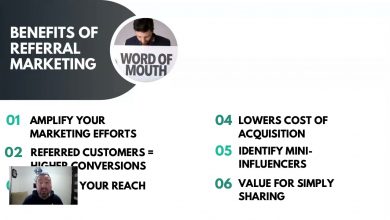Sales Playbooks – Blueprinting High Performance Selling
Sales Playbooks enable organizations to encode their deal winning sales techniques into repeatable blueprints.
 A sales playbook is a document that sales teams use to employ best practices, tactics, and strategies during different stages of the selling process.
A sales playbook is a document that sales teams use to employ best practices, tactics, and strategies during different stages of the selling process.
It outlines what a rep should do in a specific selling situation, such as prospecting, nurturing, or pitching a specific product.
A sales playbook is a comprehensive document or guide that outlines the strategies, processes, and best practices for sales teams to follow. It serves as a reference tool for sales representatives, providing them with the necessary information and resources to effectively engage with prospects, close deals, and achieve sales targets.
Featured Vendor: Linkando
Linkando is a Software-as-a-Service provider of Sales Playbooks that turn all your sellers into true sales champions in no time. Playbooks act like an experienced team mate who is always at your sellers’ side throughout the entire sales process.
Components of a Sales Playbook
Playbooks provide a standardized approach to selling, ensuring that all members of the sales team are aligned and equipped with the necessary knowledge and tools to succeed. It outlines the sales process, buyer personas, value propositions, objection handling techniques, and other critical information that sales reps need to effectively engage with prospects and close deals.
A well-designed sales playbook typically includes the following components:
- Sales Process: A step-by-step guide that outlines the stages of the sales cycle and the actions to be taken at each stage.
- Buyer Personas: Detailed profiles of the ideal customers, including their pain points, motivations, and buying preferences.
- Value Propositions: Clear and compelling statements that highlight the unique value and benefits of the product or service being sold.
- Objection Handling: Strategies and techniques for addressing common objections raised by prospects and overcoming their concerns.
- Sales Collateral: A collection of marketing materials, case studies, and product documentation that support the sales process.
- Competitive Analysis: Information about competitors, their strengths, weaknesses, and key differentiators to help sales reps position their offering effectively.
- Sales Tools and Technologies: An overview of the tools and technologies available to sales reps to streamline their workflow and enhance productivity.
Benefits of Sales Playbooks
Implementing sales playbooks can have several benefits for sales teams:
- Consistency: Sales playbooks ensure that all members of the sales team follow a consistent approach, resulting in a unified customer experience.
- Efficiency: By providing a structured framework, sales playbooks enable sales reps to work more efficiently, saving time and effort.
- Improved Performance: Sales playbooks equip sales reps with the knowledge and resources they need to effectively engage with prospects, resulting in improved sales performance.
- Onboarding and Training: Sales playbooks serve as valuable resources for onboarding new sales reps and providing ongoing training and development opportunities.
- Continuous Improvement: Sales playbooks can be regularly updated and refined based on feedback and insights from the sales team, enabling continuous improvement of sales strategies and processes.
Implementing Sales Playbooks
Implementing sales playbooks involves the following steps:
- Define Sales Processes: Clearly outline the stages of the sales cycle and the actions to be taken at each stage.
- Create Buyer Personas: Develop detailed profiles of the ideal customers, including their pain points, motivations, and buying preferences.
- Develop Content and Collateral: Create sales collateral, objection handling guides, and other resources to support the sales process.
- Train Sales Team: Conduct training sessions to familiarize the sales team with the sales playbook and ensure they understand how to effectively use it.
- Regularly Update and Refine: Continuously gather feedback from the sales team and update the sales playbook to reflect evolving market conditions and customer needs.
Measuring the Impact of Sales Playbooks
Measuring the impact of sales playbooks involves analyzing key performance indicators (KPIs) such as:
- Revenue Generated.
- Deal Conversion Rate.
- Sales Cycle Length.
- Customer Satisfaction.
- Win/Loss Ratio.
By monitoring these metrics, sales teams can assess the effectiveness of the sales playbook and identify areas for improvement.





Really fantastic info can be found on website.Money from blog